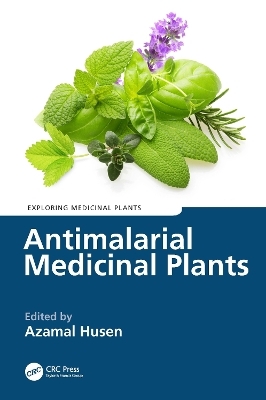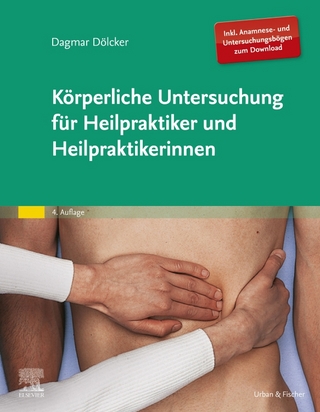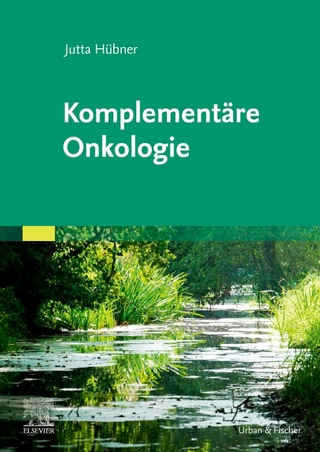
Antimalarial Medicinal Plants
CRC Press (Verlag)
978-1-032-45715-4 (ISBN)
Malaria continues to affect a large population of the world, especially in third world countries. The spread of drug-resistant parasites demonstrates the need for antimalarial agents with various modes of action. The search for remedies derived from medicinal plants for the treatment of malaria is reliant on accurate ethnobotanical and ethnopharmacological information obtained from traditional medical practitioners. Antimalarial Medicinal Plants provides information on bioactive compounds and therapeutic potentials of several antimalarial plant species found around the globe. This book evaluates these plant species with respect to their biology, diversity, distribution, and pharmacological values.
A volume in the Exploring Medicinal Plants series, this book highlights trends, technologies, processes, and services important to and necessary for efficient production, use, and understanding of medicinal qualities of antimalarial plants. It critically examines claims made by traditional medical practitioners with scientific validations for safe herbal drug formulation. It is a reference work for researchers of herbal medicine, traditional healers, pharmacists, and students associated with plant sciences and economic botany.
Azamal Husen served as Professor and Head of the Department of Biology, University of Gondar, Ethiopia and is a Foreign Delegate at Wolaita Sodo University, Wolaita, Ethiopia. Previously, he was a Visiting Faculty of the Forest Research Institute, and the Doon College of Agriculture and Forest at Dehra Dun, India. Husen’s research and teaching experience of 20 years encompasses the biogenic nanomaterial fabrication and application, plant responses to nanomaterials, plant adaptation to harsh environments at the physiological, biochemical, and molecular levels, herbal medicine, and clonal propagation for improvement of tree species. He has conducted several research projects sponsored by various funding agencies, including the World Bank (FREEP), the National Agricultural Technology Project (NATP), the Indian Council of Agriculture Research (ICAR), the Indian Council of Forest Research Education (ICFRE); and the Japan Bank for International Cooperation (JBIC). He received four fellowships from India and a recognition award from the University of Gondar, Ethiopia, for excellent teaching, research, and community service. Husen has been on the Editorial board and the panel of reviewers of several reputed journals published by Elsevier, Frontiers Media, Taylor & Francis, Springer Nature, RSC, Oxford University Press, Sciendo, The Royal Society, CSIRO, PLOS, MDPI, John Wiley & Sons and UPM Journals. He is on the advisory board of Cambridge Scholars Publishing, UK. He is a Fellow of the Plantae group of the American Society of Plant Biologists, and a Member of the International Society of Root Research, Asian Council of Science Editors, and INPST. To his credit are over 200 publications; and he is Editor-in-Chief of the American Journal of Plant Physiology. He is also working as Series Editor of ‘Exploring Medicinal Plants’, published by Taylor & Francis Group, USA; ‘Plant Biology, Sustainability, and Climate Change’, published by Elsevier, USA; and ‘Smart Nanomaterials Technology’, published by Springer Nature Singapore Pte Ltd. Singapore.
1. Diversity and geographic distribution of some antimalarial plants species
2. Biology and genetic improvement of antimalarial plant species
3. Plant Tissue Culture Practices for Antimalarial Agents
4. Sustainable techniques for the harvest and conservation of antimalarial plant species
5. Toxic compounds associated with some antimalarial plant species
6. Plant-based secondary compounds and nutrients as therapeutic agents in the management of malaria infection
7. Antioxidants from Antimalarial Plants and their Applications
8. Traditional claims and scientific validations of the antimalarial plant species
9. Antimalarial responses, traditional and other potential uses of Aristolochia genera
10. Antimalarial response, traditional and other potential uses of Aspidosperma genera
11 Antimalarial response, traditional and other potential uses of Cinchona genera
12. Antimalarial response, traditional and other potential uses of Croton genera
13. Antimalarial response, traditional and other potential uses of Cryptolepis genera
14. Antimalarial response, traditional, and other potential uses of Momordica genera
15. Antimalarial response, traditional and other potential uses of Piper genera
16. Antimalarial response, traditional and other potential uses of the genus Senna
17. Antimalarial response, traditional and other potential uses of Solanum genus
18. Antimalarial response, traditional and other potential uses of Stachytarpheta genera
19. Antimalarial response, traditional and other potential uses of Tabebuia genera
20. Antimalarial response, traditional and other potential uses of Swertia genus
| Erscheinungsdatum | 21.04.2024 |
|---|---|
| Reihe/Serie | Exploring Medicinal Plants |
| Zusatzinfo | 26 Tables, black and white; 14 Line drawings, black and white; 24 Halftones, black and white; 38 Illustrations, black and white |
| Verlagsort | London |
| Sprache | englisch |
| Maße | 178 x 254 mm |
| Gewicht | 766 g |
| Themenwelt | Sachbuch/Ratgeber ► Gesundheit / Leben / Psychologie ► Alternative Heilverfahren |
| Medizin / Pharmazie ► Allgemeines / Lexika | |
| Medizin / Pharmazie ► Medizinische Fachgebiete ► Pharmakologie / Pharmakotherapie | |
| Medizin / Pharmazie ► Naturheilkunde ► Phytotherapie | |
| Naturwissenschaften ► Biologie ► Botanik | |
| Weitere Fachgebiete ► Land- / Forstwirtschaft / Fischerei | |
| ISBN-10 | 1-032-45715-5 / 1032457155 |
| ISBN-13 | 978-1-032-45715-4 / 9781032457154 |
| Zustand | Neuware |
| Informationen gemäß Produktsicherheitsverordnung (GPSR) | |
| Haben Sie eine Frage zum Produkt? |
aus dem Bereich


